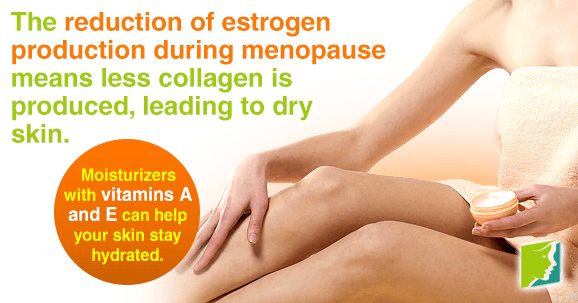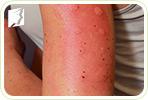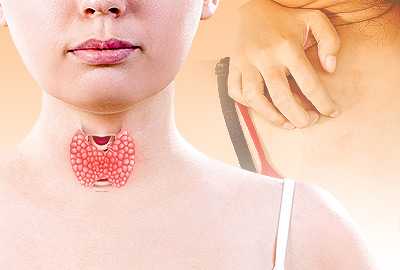Itchy skin is a symptom that affects many women going through menopause. And while it may sound like a trivial complaint, itchy skin can cause considerable irritation and stress. Read on for more information about overcoming itchy skin during menopause.
Why Do I Get Itchy Skin during Menopause?
As a woman approaches menopause, the production of hormones such as estrogen produced by the ovaries starts to slow, eventually to a level where menstruation will cease altogether. The reduction of estrogen production makes the collagen in the skin lose its effectiveness. This results in the skin becoming thinner and drier - and dry skin is the major factor when someone feels the urge to scratch. Itchy skin is typically due to dead skin cell flaking off dry skin.
Eczema during Menopause
Itchy skin during menopause may also be caused by eczema. Eczema is an inflammation of the skin triggered by allergic reactions. Menopause often lowers the immune system, therefore making the body more susceptible to allergies. If your skin is characterized by dryness, persistent itchiness, and a blotchy red color, eczema is usually the cause. You can apply eczema cream to maintain skin hydration and reduce inflammation.
What Are the Steps for Overcoming Itchy Skin during Menopause?
Applying moisturizers, especially those containing vitamins A and E, can help ensure your skin and stay hydrated longer. Many testimonials promote the effects of aloe vera and its ability to minimize dry, itchy skin.
Because dry skin leads to itchiness, the logical solution is to hydratate the skin. Consuming plenty of water is helpful in reducing itchiness, and for overall skin health.
Practicing a healthy lifestyle, including a good diet with plenty of fruits and vegetables is another important factor. Smoking or eating excessive amounts of sugary foods can cause fluid loss, resulting in drier skin, and so should be avoided if possible. Foods with soy products have phytoestrogens that help to reduce overall menopause systems, including dry skin.
In general, itchy skin is nothing to worry about as it is easily treatable. Like many menopause symptoms, this symptom is likely to disappear in time. However, it's always best to consult your doctor when beginning any new treatment or if symptoms persist or worsen.
There are also some habits that can protect your skin from further damage and itchiness, such as:
- Avoid staying in the sun for too long as sunlight can dry out skin. Protect yourself from the scorching heat by using sunscreen and/or long clothing.
- For cleaning, it's better to use tea tree, avocado, or almond oil and avoid soaps that are harsh on the skin. Alternately, you can wear gloves.
There are also alternative medicines shown to alleviate many problems associated with menopause by boosting the body's internal hormone production system.
Click on the following link for more specific information on treatments for itchy skin during menopause.
Sources
- Hutchinson, Susan M.D. "The Stages of a Woman's Life: Menstruation, Pregnancy, Nursing, Perimenopause, Menopause." November 2007.
- Love, Susan M.D. Menopause and Hormone Book. New York: Three Rivers Press, 2003.
- BMJ Group. "Menopause: What is it?" Patient Leaflet. 2007




